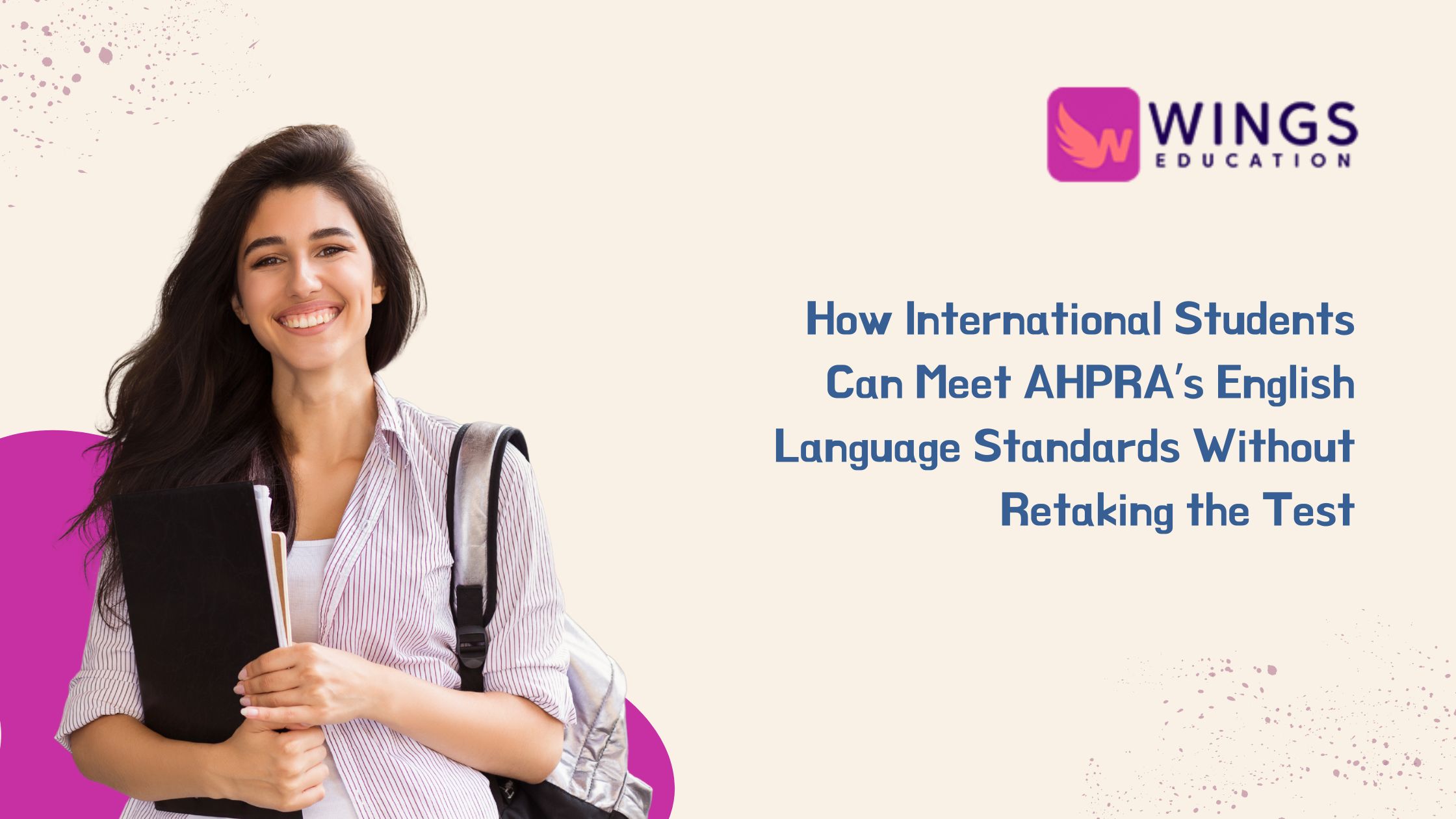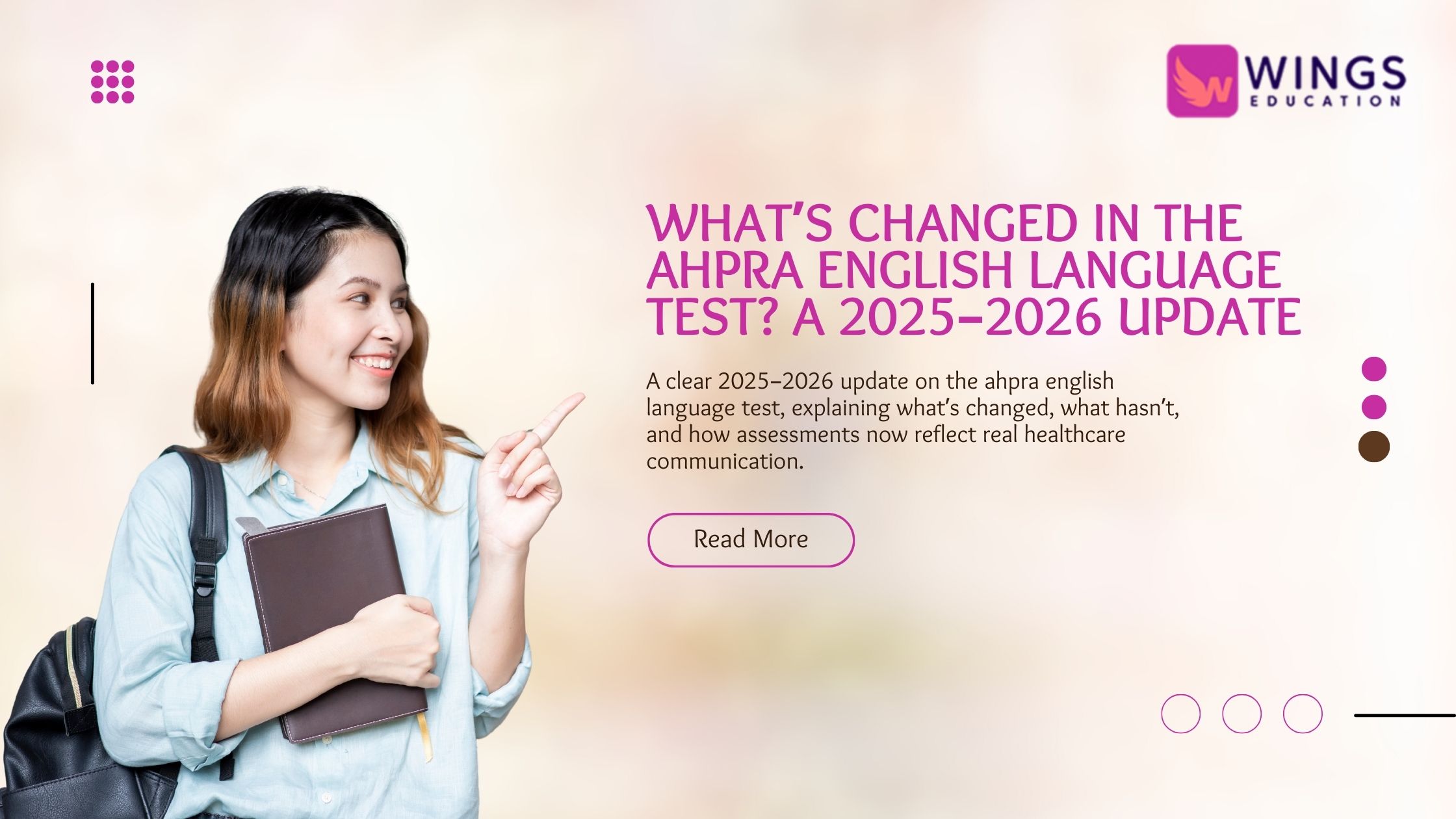
How International Students Can Meet AHPRA’s English Language Standards Without Retaking the Test
Discover how international students can meet AHPRA English language standards without retaking the test through alternative education-based pathways.
For many internationally trained healthcare professionals, gaining registration in Australia involves a significant hurdle—meeting the English language proficiency requirements set by the Australian Health Practitioner Regulation Agency (AHPRA). These standards are designed to ensure that all health practitioners communicate effectively with patients and colleagues in a clinical setting. However, the AHPRA English language test requirement can sometimes feel like a repeated roadblock for students who have already demonstrated English proficiency in the past.
Fortunately, some pathways allow international students and graduates to meet AHPRA’s English language standards without needing to retake the test, provided they meet certain conditions. Understanding these alternatives can help save time, reduce financial stress, and streamline the registration process for nursing, midwifery, medical and allied health applicants.
Understanding the AHPRA English Language Requirement
AHPRA requires all applicants for initial registration to demonstrate proficiency in English. This typically involves achieving a minimum score in one of the following approved tests:
- IELTS (Academic): Minimum score of 7 in each component (Reading, Writing, Listening, Speaking)
- PTE Academic: Each of the four communication abilities requires a minimum score of 65.
- OET: Each of the four subtests must receive at least a B.
- TOEFL iBT: Minimum score of 94 with specific minimums for each section
These scores must be achieved in one sitting or through valid score clubbing as per AHPRA’s guidelines. For many students, these tests are not just expensive but also time-consuming, especially if repeated attempts are needed to meet the minimum scores.
But there are other ways to show that you are proficient in English besides taking a language test. AHPRA allows for alternative evidence in specific cases, particularly for those who have undertaken their studies in English-speaking environments or within certain educational systems.
Alternative Evidence: When You May Not Need to Retake the Test
AHPRA accepts alternative forms of evidence to satisfy the English language requirement if the applicant meets specific educational and professional criteria. The most relevant pathway for international students is the education-based pathway, which relies on your academic history to determine whether English proficiency has already been demonstrated.
To qualify through this route, the following criteria must be met:
1. Primary Qualification Completed in English:
If your entire secondary education and tertiary health qualification were completed in English in a recognised country, you may not need to take an English test.
2. Recognised Countries for English-medium Education:
The recognised countries for this purpose typically include:
- Australia
- New Zealand
- United Kingdom
- United States
- Canada
- The Republic of Ireland
- South Africa
If you completed both high school and your health qualification (e.g., nursing degree) in English within any of these countries, you can submit official documentation from your school and university as proof.
3. Five Years of Education in English:
If you have completed at least five years of continuous education taught and assessed in English, this may also satisfy the requirement. The education must be relevant to your health profession, and at least part of it should be tertiary-level education.
4. Employment-Based Evidence:
In some limited cases, if you have worked in a healthcare setting in an English-speaking country for an extended period and can show evidence of ongoing communication in English, you may be able to submit employment-based documentation. However, this is less commonly accepted and usually requires additional supporting material.
Who Typically Qualifies Without Retesting?
Many students who have migrated to Australia early for their higher studies, particularly in nursing, may find that they are eligible under the education pathway. For example, if a student completed high school in an English-speaking country and then went on to finish a Bachelor of Nursing in Australia, they might not need to sit for the AHPRA English language test at all.
Another scenario involves students who completed both secondary education and a health qualification in countries like South Africa or Ireland. Since these are on the recognised list, AHPRA often considers the education pathway valid as long as the teaching and assessment were entirely in English.
However, it’s essential to note that simply studying in Australia or another recognised country does not automatically exempt you. The total duration, continuity, and language of instruction must meet AHPRA’s specific criteria.
Common Misunderstandings About the Language Requirement
Many applicants assume that studying in Australia for even one or two years will exempt them from taking the English language test. Unfortunately, this isn’t always the case. AHPRA’s standards are stringent when it comes to the continuity and level of education. For example, doing only a postgraduate diploma in Australia without a full undergraduate program may not be sufficient.
Similarly, while countries like India or the Philippines conduct much of their tertiary education in English, they are not on the recognised country list, which means students from these nations usually still need to take the English test, unless they have other qualifying education or employment history from accepted countries.
Some also believe that previously submitted test scores to universities or visa authorities are automatically valid for AHPRA registration. This is not true unless those scores meet the current AHPRA test requirements and fall within the validity period (typically two years).
Documentation Required for the Education Pathway
If you’re applying through the education-based exemption, you will need to gather and submit detailed supporting documentation. This usually includes:
- Academic transcripts
- Graduation certificates
- A letter from your school attesting to the fact that English was used for instruction and evaluation
- Secondary school completion certificates, if applicable
- Any employment records (in rare cases where work-based evidence is used)
All documents must be officially issued and may need to be certified or notarised, depending on the submission guidelines.
AHPRA may also request further evidence or clarification if your documents do not clearly show that the education was in English or if there are gaps in your educational history.
If You Still Need to Prove Language Proficiency
In some situations, students may discover that they don’t qualify for the education-based exemption, even if they have studied in Australia or another recognised country. This might be due to gaps in education, short course durations, or non-relevant fields of study.
In such cases, taking an approved English test remains the only option. However, it’s worth noting that AHPRA now allows score clubbing in certain scenarios. For example, you may combine scores from two test sittings taken within six months of each other, provided all other conditions are met (such as no score below the minimum allowed threshold in any sitting).
This provides some flexibility and reduces pressure to achieve all target scores in a single test session.
Final Thoughts
The AHPRA English language test is often seen as a major barrier by international students and overseas-trained health professionals. However, not every applicant needs to retake this test. Understanding AHPRA’s alternative pathways, especially the education-based exemption, can save you considerable time, money, and stress.
If your academic background includes continuous education in English in a recognised country, you may already meet the English language standard without even realising it. The key is to carefully assess your qualifications against AHPRA’s criteria and gather the necessary documentation.
It’s always wise to double-check your eligibility and confirm the current guidelines on the official AHPRA website or by contacting the relevant National Board. Requirements can change slightly from year to year, and clarity around these details ensures a smoother registration process.
In conclusion, while the AHPRA English language test is mandatory for many, it is not the only means of demonstrating proficiency. For those who qualify through the education pathway, it represents one less hurdle on the path to becoming a registered health practitioner in Australia.























